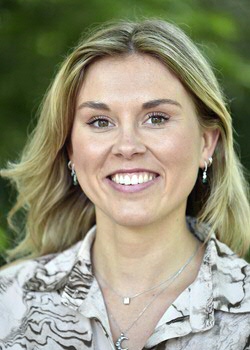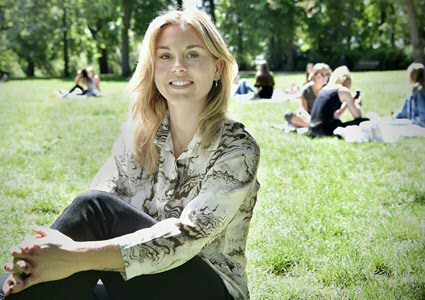What do youngsters do in ‘ordinary’ places?

Recently appointed PhD student Janine Venema isn’t tired of studying just yet. After following pre-vocational secondary education, studying at a university of applied sciences and obtaining a university degree, she started to miss the lecture halls rather soon. Since January, she has been researching the daily lives of young people at the Population Research Centre. As a result, she hopes to be able to improve their wellbeing.
You’re planning on doing research into young people who grow up in a vulnerable position and their home and place-making process. Can you tell something about that?
My research involves talking to these young people to try and understand their daily lives in the places that are important to them, such as in their neighbourhoods and schools. The online context of social media will also feature in my research. I am particularly interested in how these places fit into the development of these youngsters’ identities. So as a sociologist and demographer, I am very enthusiastic about the socio-geographic angle of this research. Ultimately, I’d like to contribute to the existing socio-geographic literature on the subject and to provide strategies and tools that can be used as part of the action research ‘Coaching in Home & Place making’, a larger study which my research falls under.
You’ve just started as a PhD student. How are you finding it?
I’m enjoying it very much! It’s actually been almost two years since I graduated, but I spent some time working as a researcher at the University Medical Center Groningen (UMCG) before taking up a PhD position. I realized that I was missing the lecture halls and wanted to specialize more in socio-geographic research. When the opportunity for this research project arose, I knew that I had to grab it with both hands. A qualitative youth study focusing on living environment and identity development was both socially relevant and worthwhile. In addition, it gives me a chance to learn and the freedom to steer my research in a direction that suits me. I am very happy in my position at the Population Research Centre, and I consider myself lucky with the supervision I’ll be given during my research.

A lot of researchers have had to stall their research due to the coronavirus. How has this affected you?
When the lockdown started and we had to work from home, I was still writing my research proposal, so I wasn’t immediately affected. Now that social distancing is set to continue for longer than we’d originally thought, I’ll have to come up with some creative solutions. This is largely due to the ethnographic nature of my research, which means that I come into direct contact with lots of people. I’m confident that this will be possible in the long run and that everything will work out.
Was PhD research always your dream?
I started my school career in pre-vocational secondary education and for a long time, I knew very little about the ins and outs of academia. But after a year at a university of applied sciences, I came to the UG to study sociology and my horizons widened. Thanks to various part-time jobs as a research assistant, I gradually realized that I was interested in conducting my own social science research and that a PhD position might even be within my reach. I’ve always wanted my work to make a difference to society, and I think that this research is a step in the right direction. I hope that it will help to improve the wellbeing of young people in Groningen.
Looking to the future, do you have any idea about what you’d like to do when you finish your PhD?
At the moment, I think that I’d like to work on projects revolving around the identity formation and positive development of young people, so that I can put the knowledge and experience that I acquire during this PhD period into practice. I’d like to do this in the Netherlands, but it’s always been my ambition to work on international projects – for an NGO, for example. Teaching also appeals to me, so who knows? I might stay at the University. Or perhaps I’ll combine the two...
More information
Janine Venema
More news
-
01 December 2025
The power of movement
